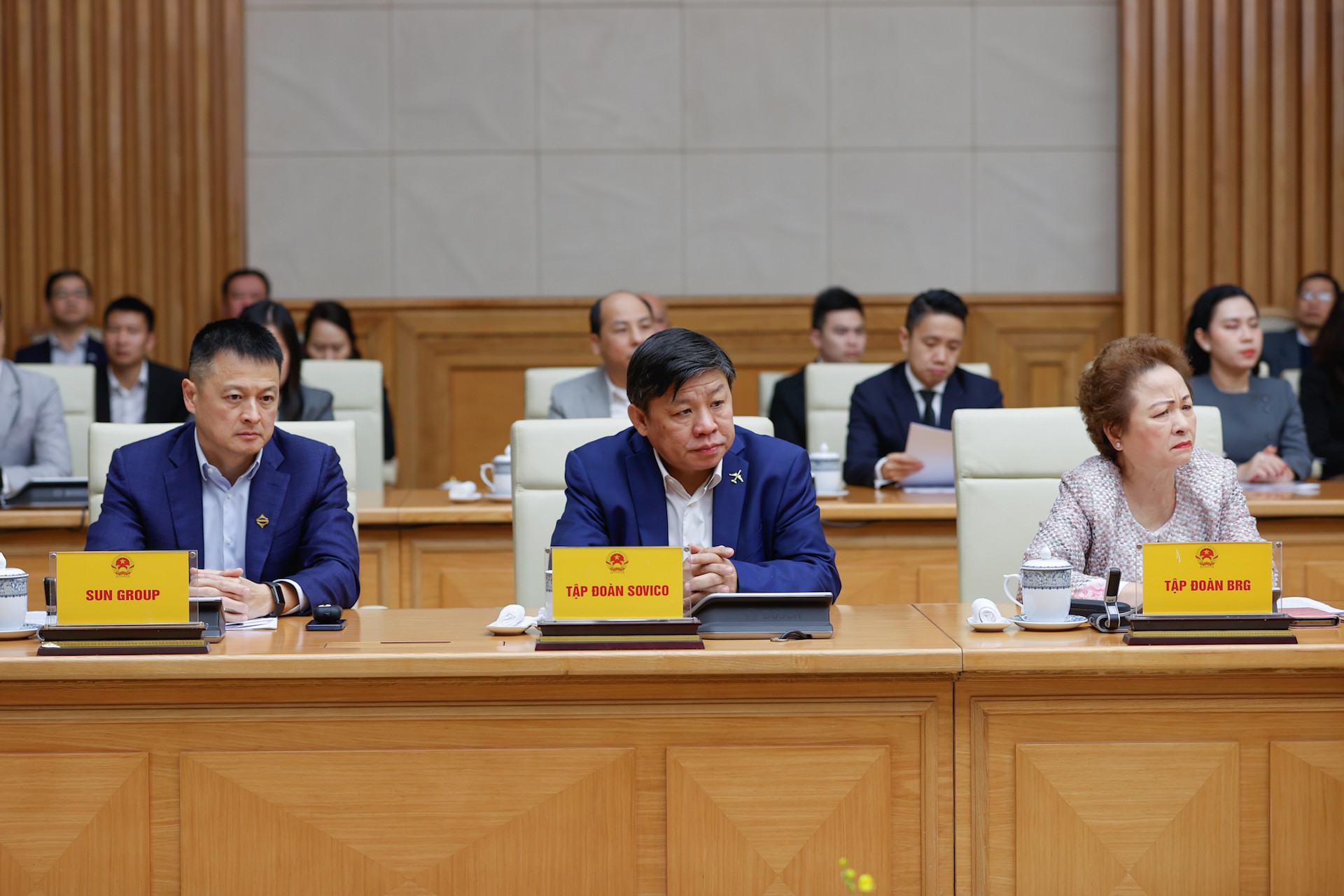The government should establish a special task force to implement Resolution 02, similar to past efforts in economic reforms, to improve the business environment, mobilize resources, and boost economic growth.
The Prime Minister has met with private businesses, emphasizing their role as a pillar of the economy and urging them to drive double-digit economic growth.
VietNamNet continues its discussion with Nguyen Dinh Cung, former Director of the Central Institute for Economic Management, on how to unleash the power of Vietnam’s private sector.
Restoring private sector confidence

Cung believes that Vietnam must act urgently to rebuild trust in the private sector. While the government has already set up six working groups to resolve investment bottlenecks, he suggests creating a task force specifically dedicated to implementing Resolution 02, focusing on business environment reforms and economic growth.
This task force, led by a Deputy Prime Minister, would include government officials, economic experts, and business association representatives. It would systematically identify barriers and challenges facing businesses, assigning specific tasks to ministers and provincial leaders to eliminate these obstacles on a monthly or quarterly basis.
The government should also hold direct meetings with private enterprises, gathering firsthand feedback on business difficulties and bureaucratic inefficiencies in investment procedures. Entrepreneurs would provide practical policy recommendations to help Vietnam achieve its double-digit growth target.
Nguyen Dinh Cung is confident that bold and decisive reforms could remove key bottlenecks and create breakthroughs in Vietnam’s economic development. He suggests that the Prime Minister issue a directive or resolution to immediately eliminate legal barriers, accelerating business-friendly reforms.
Overhauling Vietnam’s restrictive business regulations
Vietnam’s legal framework remains one of the biggest obstacles to economic development. The 2013 Constitution states that citizens’ rights should only be restricted in cases of national security, social order, morality, or public health concerns. However, many unnecessary business regulations remain in place, limiting economic freedom.
Cung proposes radical regulatory reform, including reducing or eliminating two-thirds to three-quarters of the conditional business sectors listed in Appendix IV of the Investment Law and other sector-specific laws.
He also advocates abolishing vague, unclear business conditions that cannot be uniformly understood or enforced and shifting toward a post-audit regulatory model based on internationally recognized industry standards rather than pre-approval bureaucratic procedures.
Boosting innovation and technology for economic breakthroughs
Nguyen Dinh Cung argues that scientific research, technology adoption, and digital transformation are the true drivers of economic breakthroughs. However, Vietnam’s business environment does not encourage innovation; instead, it stifles it.
Currently, companies can allocate up to 10% of their pre-tax profits to science and technology funds, but they lack autonomy in using these funds. Any unused funds must be transferred to the state, discouraging companies from investing in research and technological advancements.

To foster a pro-innovation environment, he suggests major legal revisions, including amendments to the Science and Technology Law, Intellectual Property Law, Corporate Income Tax Law, and Personal Income Tax Law. These changes would create a legal framework for Vietnam’s science and technology market, enhancing private sector research and development capabilities.
He believes that companies should be allowed to establish independent R&D funds, with annual contributions of 5-10% of pre-tax profits. There should be no restrictions on fund size, and companies should have full control over fund usage to encourage high-risk, high-reward research. Private research institutes should also be permitted to operate like businesses, with tax incentives such as 0% VAT and income tax exemptions.
Making land more accessible for Vietnamese businesses
Land access remains a major obstacle for Vietnamese enterprises, particularly small and medium-sized businesses. Under current Land Law provisions, land is mainly allocated through auctions or investor selection processes, which favor large corporations and exclude most SMEs. Additionally, high land prices due to speculation have made business expansion financially unfeasible.
Vietnam’s industrial parks primarily serve foreign investors, leaving domestic enterprises struggling to secure affordable land. Without access to land and industrial space, Vietnamese businesses cannot expand into manufacturing, logistics, or large-scale retail sectors.
To address this, Nguyen Dinh Cung proposes flexible land-use planning at national and local levels, ensuring adequate space for domestic enterprises. He also calls for establishing a legal framework for a land-use rights market, particularly for agricultural land conversion. He suggests providing land at zero rental cost to credible industrial park developers, ensuring they reserve space for domestic businesses.
By offering affordable industrial land, Vietnam can foster domestic supply chains and develop a strong supporting industry for local and foreign manufacturers alike.
Seizing Vietnam’s moment for economic transformation
Despite decades of economic reforms, Vietnam’s business environment remains plagued by legal bottlenecks, excessive bureaucracy, and regulatory uncertainty. These institutional barriers discourage businesses from scaling up, limit capital and technology access, and dampen investor confidence.
Vietnam now has a historic opportunity to reshape its economic landscape. By removing legal obstacles, empowering businesses, and modernizing policies, the country can unlock its full economic potential and achieve sustained high growth.
Tu Giang - Lan Anh